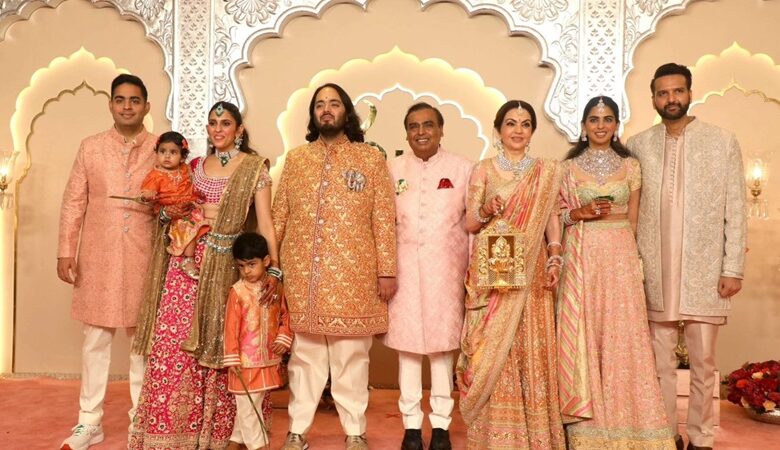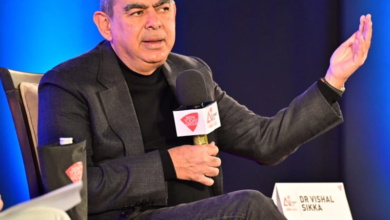Strategic Brilliance or Lavish Display: A Marketing Case Study of the Ambani Wedding

News Mania Desk/MD Athiq/20th July 2024
The Ambanis hosted what is possibly the most extravagant wedding in Indian history, sparking mixed reactions across the country. On one hand, some criticize the event as an ostentatious display of wealth, while on the other, many admire its grandeur and view it as a symbol of Indian ambition and achievement.
Despite differing opinions, this wedding offers India a unique advantage that, if leveraged correctly by other billionaires, could boost exports and save taxpayer money. The concept of soft power, defined by Harvard Professor Joseph Nye, plays a crucial role here. Soft power, unlike hard power, uses cultural appeal and influence to shape international perceptions and achieve strategic goals.
Understanding Soft Power
Soft power contrasts with hard power, which relies on military, economic, or political force. For instance, China employs hard power through its debt-trap diplomacy, extending $26.5 billion in loans to Pakistan, then using its economic and military influence to control strategic assets like the Gwadar port. Similarly, the U.S. invasion of Iraq in 2003 and Russia’s actions in Ukraine exemplify hard power.
Soft power, however, relies on cultural influence. South Korea is a prime example. In the early 2000s, South Korea was primarily known for its cars and electronics. Today, it’s synonymous with K-pop, Korean dramas, beauty products, and films. This transformation began in 1994 when the South Korean government recognized the economic potential of exporting culture, following the success of the movie Jurassic Park, which generated revenue comparable to the export of 1.5 million Hyundai cars.
The South Korean government implemented policies to support cultural exports, increasing the budget for cultural industries from $14 million in 1998 to $84 million in 2001. This led to the global rise of K-pop, Korean dramas, and bands like BTS, resulting in significant economic benefits:
- Tourism Boost: Tourist arrivals in South Korea surged from 8.8 million in 2010 to 17.5 million in 2019, contributing billions to the economy.
- Export Growth: Exports of South Korean skincare products skyrocketed from $320 million in 2011 to $3.82 billion in 2023.
- Economic Impact: BTS alone generated $3.67 billion for the South Korean economy and created 8,000 jobs. Netflix plans to invest $2.5 billion in South Korean projects, and the global K-pop beauty market is projected to reach $18.32 billion by 2030.
- Brain Gain: South Korea attracts international students, reversing the brain drain seen in other countries. The number of people taking the TOPIK test, a Korean language proficiency test, increased from 106,000 in 2010 to 375,000 in 2019.
The Role of a Grand Wedding
The concept of leveraging a single wedding to develop soft power may seem far-fetched, but the British royal weddings provide a blueprint. The weddings of Kate Middleton and Prince Harry were viewed by hundreds of millions worldwide, significantly boosting the UK’s cultural influence. The fascination with the British Royals leads to:
- Increased Product Sales: Anything the Royals wear or use sees a massive increase in sales. For instance, the blue Issa dress Kate Middleton wore for her engagement sold out in 24 hours across multiple countries.
- Social Awareness: Royals like Princess Diana and Meghan Markle have used their influence to raise awareness about critical social issues, resulting in increased support and funding for these causes.
- Tourism: The global fascination with the Royals drives millions of tourists to the UK, particularly to royal sites like Windsor Castle, enhancing the country’s tourism revenue.
Lessons for India
The Ambani wedding, with its extensive media coverage and international attention, has the potential to amplify India’s cultural influence globally. By celebrating weddings with grandeur and ensuring extensive coverage, Indian billionaires can replicate the British royal strategy, promoting Indian culture, boosting tourism, and increasing the global popularity of Indian brands.
While the Ambani wedding may appear to some as mere opulence, it holds the potential to serve as a powerful tool for enhancing India’s soft power. By leveraging such events strategically, India can achieve significant economic and cultural benefits, much like the UK and South Korea have done.






